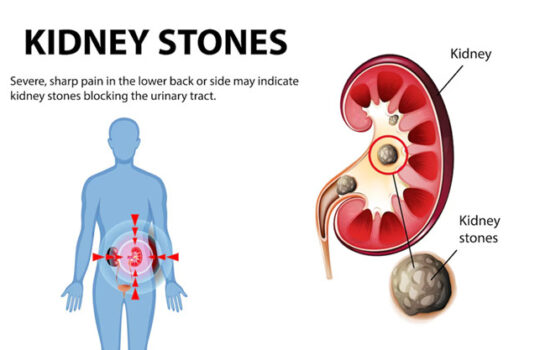Recurring UTIs: Causes, Symptoms & Treatment Options

If you are sick of dealing with these infections, here is what you should be reading.
Recurring UTI cases can be annoying and painful because they disrupt your daily activities and thus disturb your peace. The first step in managing them is to know the causative agents. This guide will delve into some common reasons why recurrent urinary tract infections occur, their symptoms, and prevention methods.
Discover how Ayurvedic and natural treatments could help you obtain respite from the same.
Table of Contents
- What is Recurrent Urinary Tract Infection?
- Repeated Urinary Tract Infection Causes
- Recurrent Urinary Tract Infection in Women
- Recurrent Urinary Tract Infection in Men
- Other Contributing Factors (e.g., medical conditions, hygiene)
- Chronic Urinary Tract Infection Symptoms
- Complications of Continuous Urinary Tract Infections
- Diagnosing Recurrent Urinary Tract Infections
- Treatment for Recurrent Urinary Tract Infection
- Modern Medical Treatments
- Ayurvedic and Natural Remedies
- How to Treat Recurrent Urinary Tract Infections at Home
- How to Prevent Recurrent Urinary Tract Infections
- Conclusion
- Disclaimer
What is Recurrent Urinary Tract Infection?
A recurrent urinary tract infection means the repeated urinary tract infections or every two & three month if anyone suffer from urinary tract infection, called recurrent urinary tract infection. While anyone can get a urinary tract infection (UTIs), recurrent urinary infections are more common in women & men.
Bacterial growth causes urinary tract infections. Learn how bacteria move up in the urinary system and cause discomfort.
Urethritis- An infection of the urethra. Urethritis signals an infection in the urethra. It involves inflammation of the urethra, leading to discomfort.
Symptoms: Burning sensations during urination Cystitis- An infection of the bladder. Cystitis is a bladder infection that causes discomfort and frequent urges to urinate. Bacteria have now moved up from the urethra.
Symptoms: Pain during urination and cloudy urine
Pyelonephritis- An infection of the kidneys. Pyelonephritis is a serious urinary tract infection affecting the kidneys. Mostly related with blocking one or both of your kidneys.
Symptoms: Chills, fever and painful urination.
Repeated Urinary Tract Infection Causes
The feeling of frustration barely begins to describe the condition of dealing with recurrent urinary
tract infections (UTIs). It is essential to comprehend why UTIs have been afflicting you repeatedly.
These are some common causes:
-
- Bacterial Insusceptibility UTI is often caused by bacterial resistance. The application of several antibiotics may lead to mutations among bacteria that become resistant with time, making future infections difficult to treat.
- Underlying Health Problems Recurrent UTIs are common in individuals with such diseases as kidney stones or diabetes. These illnesses might impede the body’s fight against infection, which may require specific types of treatment.
- Anatomical Factors Some individuals have different anatomical structures within their urinary tracts that make them more prone to infections. Women for example have shorter urethras compared to men allowing bacteria easy access into the bladder.
- Hygiene and Lifestyle Factors The act of wiping from back to front while using the toilet can introduce germs into the urinary tract. Besides, lifestyle related UTIs originate from a low water intake and long urine retention time.
- Sexual Activity Having sex is another way a woman can get a urinary tract infection. Sometimes during sex, bacteria from either the vagina or rectal area may be pushed into the urethra; therefore, emptying your bladder before or after sexual activity will help you flush out any bacteria that might be present in your urethra.
Recurrent Urinary Tract Infection in Women
Over 50% of Indian women face Urinary tract infection at least once in their lives, with 30% experiencing recurrent episodes. Recurrent urinary tract infections are more common in women due to anatomical differences, such as a shorter urethra. Causes include bacterial factors, incomplete bladder emptying, and lifestyle choices, and risk factors such as hormonal changes and spermicide use.
Recurrent Urinary Tract Infection in Men
Recurrent urinary tract infections (UTIs) in men are common and usually signal an underlying issue, such as a urinary stone (kidney stone), enlarged prostate,
Other Contributing Factors (e.g., medical
conditions, hygiene)
Other contributing factors to urinary tract infections (UTIs) include medical conditions like diabetes, kidney stones and an impaired immune system. Poor hygiene, dehydration and anatomical factors like incomplete bladder emptying also elevate the risk. Age, pregnancy, and catheter use further increase susceptibility by affecting urinary flow, local immunity, or providing an entry point for bacteria.
Chronic Urinary Tract Infection Symptoms
You must detect symptoms of UTIs promptly to seek treatment early enough. The following are some
common signs:
- Frequent urination is a condition in which there is a strong need to pee, yet one doesn’t pee often.
- Painful or hotness upon urination is referred to as pain or burning.
- Both cloudy urine and foul-smelling urine may look like your own pee.
- In the lower abdomen, one may feel discomfort or pain that occurs in the region. Sometimes,
blood may be found in one’s urine (hematuria). - When someone feels extremely tired for no reason and generally not feeling well, fatigue and malaise can describe this situation. It is wise to see your doctor anytime these symptoms keep
coming back again and again.
If you experience any of these symptoms frequently, it’s a good idea to consult with your doctor.
Complications of Continuous Urinary Tract Infections
Continuous urinary tract infections can lead to serious complications like kidney infection (pyelonephritis), which may cause permanent kidney damage, chronic kidney disease (CKD), formation of kidney stones, abscesses, in or around the kidneys, and urethral strictures (narrowing of the urethra).

Diagnosing Recurrent Urinary Tract Infections
Usually, diagnosing a recurrent UTI happens in a few steps
- Medical History and Physical Examination
To understand your symptoms, the doctor will take a detailed medical history and check for previous UTIs. A physical examination may also be done to look for signs of infection or hidden issues.
- Urine Tests and Cultures
A urine sample is essential for diagnosing a UTI. The sample will examine bacteria, white blood cells, and other features of infection. A urine culture can reveal bacteria causing such an infection, allowing for the right choice of antibiotic treatment.
- Imaging Tests
If you have recurring UTIs, your doctor may recommend imaging examinations such as ultrasound or CT scan. These help identify structural defects in the urinary tract system that may predispose to infections.
Treatment for Recurrent Urinary Tract Infection
For recurrent urinary tract infection many treatments available included modern medical treatment, ayurvedic and natural remedies, lifestyle & diet recommendation & yoga. All of them helpful in urinary tract infection problem.
Modern Medical Treatments
Modern medical treatments for urinary tract infections (UTIs) primarily involve antibiotics & alkalisers work to increase the pH of urine, making it more alkaline.
Ayurvedic and Natural Remedies
For people with recurring UTIs, many natural and Ayurvedic remedies have proven to be helpful.
Some use Ayurveda because it takes a comprehensive approach employing natural substances to keep balance and well-being. It is oriented at avoiding diseases and treating their underlying triggers, not just symptoms. The other alternative is Ayurvedic medications that are less or even free from side effects while maintaining healthy bodies.
These natural products use herbs like Gokshura, Varuna, and Pashanbheda, which have known antibacterial / anti-inflammatory properties and can minimise UTIs.
Integrating these natural and Ayurvedic practices into your routine can support your urinary health and reduce the frequency of recurrent UTIs.
How to Treat Recurrent Urinary Tract Infections at Home
- Dietary Changes Ensure you include antioxidant-rich, vitamin-rich, and mineral-rich foods in your diet. Consider tomatoes, a lycopene-containing vegetable, berries, and green leafy vegetables, among other foods that can help maintain good urinary health and fight inflammation.
- Physical Exercises Kegel exercises, also known as pelvic floor exercises, can be very helpful. They improve bladder muscles, making it easier to control the release of urine and reducing urinary tract infections.
- Hydration Thus, it is very important to stay hydrated so that bacteria are flushed out of the urinary system. Try consuming at least eight glasses of water on a daily basis. That being said, make sure you don’t drink too much during the evening hours while trying to hydrate yourself so that you don’t have too many urination episodes at night.
How to Prevent Recurrent Urinary Tract Infections
Prevention is everything to manage recurring UTIs. Follow these simple steps:
- Good Hygiene Practices Good hygiene is important. To prevent bacteria from spreading, always wipe from front to back after using the toilet. Also, teach children how to be hygienic to reduce the risk of getting infections.
- Adequate Hydration It is essential to drink a lot of liquids, especially water, which helps flush out bacteria from the urinary tract. Aim to drink at least eight glasses of water daily and avoid holding urine for too long.
- Dietary Considerations A nutritive diet that includes fruits, vegetables, and whole grains should be encouraged. Some foods, like oranges and strawberries, contain plenty of vitamin C. These can make urine more acidic, which is unfavourable for bacterial growth.
- Lifestyle Adjustments
Evade using harsh soaps or bubble baths that can trouble the urethra. Wear loose-fitting, breathable clothing to prevent moisture buildup in the genital area. Urinate before and after sexual action to help flush out bacteria. - Regular Bathroom Breaks Don’t hold it in! Regular bathroom trips prevent bacterial multiplication in the urinary tract, lowering the risk of infection. Make sure to pee before and after intercourse.
Conclusion
It is hard and annoying to suffer from recurring urinary tract infections, but knowing about them and taking precautions can be useful. Proper hygiene maintenance, increased water intake, dietary changes, and exploring natural remedies can reduce instances of these diseases, thereby enhancing one’s quality of life.
If you are tired of grappling with repeated UTIs, consider incorporating Ayurvedic options such as Urepro Syrup by Goelar Health Group into your daily routine. That’s a natural way of supporting your urinary health while lowering infection chances. Nevertheless, always consult with a healthcare provider to ensure it suits you best.
Disclaimer
This article should not be taken as any form of medical advice; instead, consult a professional. Always seek medical guidance before using or diagnosing any patient condition.
FAQ
What are the symptoms of chronic urinary tract infection?
Ans- The symptoms of chronic urinary tract infection are Frequent urination a condition in which there is a strong need to pee, Painful or hotness upon urination is referred to as pain or burning, both cloudy urine and foul-smelling urine may look like your own pee.
Why are recurrent UTIs more common in women?
Ans- Recurrent urinary tract infections are more common in women due to anatomical differences, such as a shorter urethra.
Can men get recurrent urinary tract infections?
Recurrent urinary tract infections (UTIs) in men are uncommon and usually signal an underlying issue, such as an enlarged prostate, chronic prostatitis, or urinary tract stones (kidney stone).
What is the best treatment for recurrent urinary tract infection?
Ans- increased water intake, include antioxidant rich & vitamin rich diet, lycopene containing vegetable, berries in diet, physical exercise & use natural herbs like gokshura, varuna, pashanbheda,which have anti-inflammatory / anti-bacterial properties.
How can I prevent recurrent urinary tract infections?
Ans- Good hygiene practices, adequate hydration (increase fluid/water intake), vitamin c & antioxidant rich diet, wear loose fitting cloth, urination when urge.
What are the complications of continuous urinary tract infections?
Ans-Continuous urinary tract infections (UTIs) can lead to serious complications such as sepsis, kidney disease, recurrent urinary tract infections can also result in the formation of kidney stone.
do you treat recurrent urinary tract infections naturally?
Ans- Yes, we treat recurrent urinary tract infections naturally through included in diet antioxidant- vitamin-mineral rich food, vegetables, fruit, stay hydrate (consume minimum eight glass of water) pelvic floor exercises or participate in physical exercises.
About Dr. Kalpit Acharya
- Kalpit Acharya is a dedicated and passionate Ayush Surgeon, with expertise in various surgical procedures including Abdominal surgeries & Ano rectal surgeries, wound management and Ayurvedic para-surgical procedures. Combining his clinical expertise with a strong academic foundation in M.S. General Surgery (Shalya Tantra).
- He has achieved notable recognition, including winning prizes in prestigious competitions like SANGAM 2024 @ IIT BOMBAY and AAVISHKAR 2024. Additionally, Dr. Acharya was awarded for his research in the field of Ayurveda and modern medicine at IIT Bombay, IIT Delhi, and ACTREC TMC.
- Dr. Acharya is committed to providing Surgical & holistic care that addresses the physical, mental, and spiritual well-being of his patients through the integration of Ayurvedic principles and modern medical knowledge.









